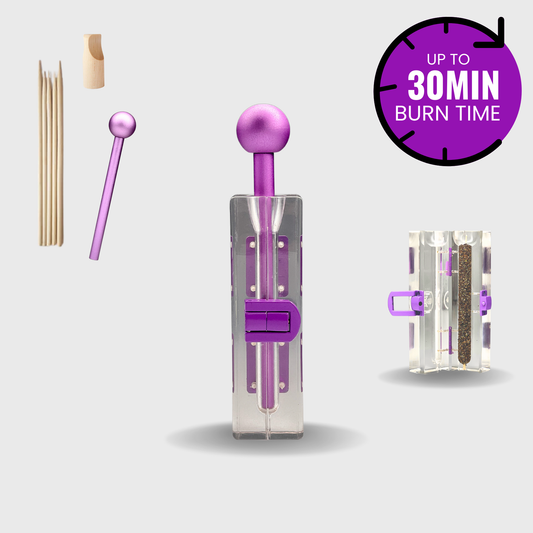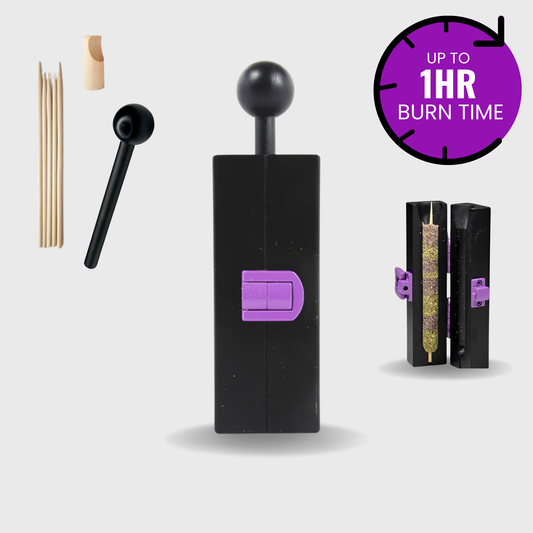⬇️ Prefer to listen instead? ⬇️
- Schedule I reached No. 1 on Steam top sellers, highlighting intense player interest in drug culture-themed games.
- Cannabis, still federally a Schedule I drug, is legal for medical use in 38 states—exposing policy contradictions.
- The game uses satire to reflect public skepticism of the war on drugs and outdated federal cannabis scheduling.
- Gen Z and millennials are redefining cannabis use, with trends favoring mindfulness and digital escapism.
- Federal rescheduling efforts for cannabis are stalled, despite broad public and state-level support.
When a cheeky drug dealer game called Schedule I skyrocketed to the No. 1 spot on Steam’s top sellers list, it didn’t just rack up downloads—it sparked a cultural moment. With overwhelmingly positive reviews and gameplay centered on building a narcotics empire in a gritty city, Schedule I takes a swipe at America’s decades-long war on drugs. But is it glamorizing illegal activity, or blowing the whistle on outdated policies and double standards—especially when it comes to cannabis?
What the Heck Is ‘Schedule I’?
“Schedule I” isn’t just an edgy or provocative game title—it’s steeped in legal and cultural significance. In the United States, a Schedule I classification under the Controlled Substances Act means the drug in question is considered to have:
- A high potential for abuse,
- No currently accepted medical use, and
- A lack of accepted safety for use under medical supervision.
The list includes notorious narcotics like heroin, ecstasy (MDMA), and LSD. Curiously, it also includes cannabis—a substance over 70% of Americans now support legalizing (according to recent Pew and Gallup polls), and one with legal medical use in 38 states. That contradiction is what Schedule I is banking on.
By naming itself after this classification, the game lifts the conversation from entertainment into subtle (and sometimes not-so-subtle) satire, challenging the enduring stigmas imposed by federal drug policy. The title becomes more than a name—it's a protest sign in pixelated form.

Inside the Game: Drug War Satire or Glorification?
At its core, Schedule I is a simulation and strategy game. You start off as an underdog in the fictional west-coast city of Hyland Point with just a few bags of weed and a dream—or more realistically, a high-risk hustle. The objective: grow your empire by manufacturing, distributing, and profiting from illegal substances, all while avoiding police interference and taking down rival drug lords.
It's easy to assume the game is yet another glorified crime simulator. But what separates Schedule I from its predecessors (think Grand Theft Auto or the old-school Drug Wars text game) is its self-awareness. It’s a commentary, loaded with Easter eggs that lampoon hypocritical policies and expose socio-political double standards.
Features that make the satire crystal clear include:
- NarcoEconomics Mode: A minigame that mimics real-world tax loopholes.
- Legal Lobbying Power-Ups: Tools to bribe or divert law enforcement budgets, poking fun at Big Pharma or tobacco’s role in policy manipulation.
- In-Game News Broadcasts: Emulate real headlines, often absurdly juxtaposing cannabis arrests with alcohol sponsorships at national events.
Far from merely encouraging illicit behavior, Schedule I encourages critical thinking about the persistent failures of America’s war on drugs—and gamers have taken note, flooding message boards with discussions not just about strategies, but policy critiques.

Cannabis in ‘Schedule I’: Still a Contradiction in Gaming and Government
Cannabis features prominently in the early parts of Schedule I and remains a cornerstone of expansion within the game. Players are rewarded for scaling their weed empire, including cultivating different strains, optimizing grow environments, and even branding their product—mirroring the very real (and legal) cannabis industry boom.
But the game contrasts this legitimacy with constant threat: random police raids, zoning issues, and turf wars—all of which serve as mechanical metaphors for current regulatory confusion. In most U.S. states, dispensaries function legally and even pay taxes, while at the federal level, they’re denied banking services and could be raided at any time.
Even more sharp is the satire when players can get "Medical Dispensary" skins for operations—despite federal Schedule I status still labeling cannabis as devoid of medical use. It’s as if the game is taunting lawmakers: See how disconnected this all is?
Through gameplay, Schedule I challenges the way society categorizes substances—notably a plant widely accepted for medical and recreational use, but still punished under obsolete laws.

Cannabis Rescheduling: The Reality vs. the Pixels
The most pointed jab Schedule I makes at federal policy comes through its central theme: scheduling. In real-world drug law, schedules are hierarchical classifications that often carry criminal justice consequences. Cannabis being in Schedule I means it’s considered as dangerous and medically useless as heroin… on paper.
Reality, however, paints a far different picture. State-level legalization is now mainstream, and a growing body of scientific research supports cannabis’s therapeutic benefits—for anxiety, chronic pain, PTSD, and more.
So why hasn’t the federal government caught up?
The Biden administration initiated steps to reclassify cannabis as a Schedule III substance in early 2024, a move that could decriminalize many of its uses and open the door for federal medical study and tax deductions long denied to cannabis businesses. But momentum stalled. A DEA administrative law judge postponed further hearings, citing questions over internal consensus and "expert testimony credibility".
Meanwhile, Donald Trump—previously lukewarm but not hostile to cannabis—has yet to stake a solid position. Sporadic nods to cannabis banking reform haven't yielded tangible advances. According to GOP figures like former Representative Matt Gaetz, rescheduling is “on the horizon,” but delays suggest otherwise.
The federal hiccup underscores the game’s core message: policy doesn’t just lag behind culture—it sometimes ignores it altogether.

Pop Culture as Policy Mirror
Video games, once considered purely escapist, have increasingly become tools for social commentary. In the way that shows like Breaking Bad dissected the morality of meth production, games like Schedule I are flipping the mirror toward American law.
By embedding these critiques within interactive experiences, developers are influencing how younger generations perceive policy. The layers of complexity in Schedule I don't just add depth—they serve as thought experiments.
Gamers are asked subtly: If cannabis is safer than alcohol, why is it criminalized? If thousands make legitimate livelihoods from weed, why are so many still incarcerated for past offenses?
Pop culture thus becomes policy critique, where games are no longer merely entertainment, but a call to question—and potentially reshape—systemic inertia.
Digital Uprisings & Young Adult Cannabis Culture
Today's young cannabis users aren’t caricatures of "Cheech & Chong." Gen Z and millennials are defining new relationships with cannabis—ones built more around mindfulness, wellness, creativity, and in many cases, digital interaction.
Schedule I fits neatly into this pattern. For one, it's interactive, which makes it more immersive than passive portrayals in film or TV. Secondly, it aligns with existing routines: many cannabis users blend gaming with consumption to enhance creativity or stress relief.
This hybrid culture is gaining traction. One eye-opening example comes from professional sports: a recent New York Times report noted many NHL players are forgoing alcohol in favor of cannabis and team gaming sessions, citing better performance and mental clarity.
This trend reflects a larger generational pivot:
- Using cannabis not to escape, but to enhance focus.
- Turning to digital platforms for social bonding and reflection.
- Replacing stigma with normalization through everyday experiences.

From Gaming Screens to Rolling Scenes
As screens normalize open conversations around cannabis culture, the physical rituals are adapting as well. Gone are the days of haphazard joints and plastic grinders. Cannabis consumers are opting for meticulous, intentional forms of use.
That’s where innovations like Purple Rose Supply’s CannaMold come in. The tool allows users to mold compact, long-burning “cannagars” (cannabis cigars), spotlighting airflow control, smoother burns, and measured intensity. These aren’t just accessories—they’re extensions of a lifestyle.
Just like Schedule I lifts conversation around legality and ethics, modern cannabis tools improve the experience from casual use to purposeful ritual.
Gaming lets you build fantasy empires. Rolling with precision tools lets you build personalized, enhanced cannabis experiences.

Normalization Through Innovation
Schedule I’s core achievement isn’t gameplay; it’s how it weaponizes irony to expose policy dysfunctions. Similarly, cannabis gear innovation isn’t just about convenience—it’s about changing perception.
When tools emphasize craftsmanship, cleanliness, and consistency, they flip the narrative from “stoner behavior” to intentional living. Consumers aren't looking for the strongest high—they're seeking control, calm, and connection.
By embracing this model, products—like the game—become forums for redefinition. One pixel or puff at a time.
Let’s Be Real: Satire Can Be a Gateway (to Critical Thinking)
Satirical pieces have long played a role in shaping public perception, from The Onion to satirical games like Papers, Please. Like those titles, Schedule I blurs the line between parody and purpose.
Beyond the crip-walking dealers and digital weed farms lies a deeper commentary. The game asks difficult questions: Who benefits from current drug laws? Why does change take so long? What happens to those still incarcerated for doing what others now profit from legally?
These are questions that demand answers—and the game uses its provocative format to bring them to the forefront of user consciousness.
For cannabis users especially, who are often already critical of status quo drug policy, Schedule I is another tool of expression. It’s not about romanticizing crime. It’s about analyzing policy through the lens of accessible, engaging satire.
Final Puff: Our Take
Schedule I might look like chaos from the outside—a digital underworld of drug dealing and cartel warfare—but its heart beats with purpose. It’s not glorifying criminality; it’s demystifying illegitimacy. It holds up a mirror to our laws, our inconsistencies, and our cultural hypocrisies.
Here at Purple Rose Supply, we recognize that same duality. We believe cannabis isn’t about recklessness—it’s about ritual, refinement, and empowerment. Our products aim to support that mindset by helping users roll cleaner, smoke smoother, and engage more fully.
As Schedule I tops Steam’s best-seller list, it’s more than a click-to-play—it’s a click-to-think.
So next time you light up, fire up the conversation too. Whether through satire or smoke, the movement toward cannabis legitimacy is being shaped on multiple fronts—and it’s blazing forward fast.




